
When poll workers opened the doors to Buxton Town Hall at 6 a.m. Tuesday, there were two voters waiting in line. A third arrived shortly after.
It was a vastly different scene from November, when dozens of people waited in a line that stretched down the sidewalk and around the side of the building. Despite the slow start, Town Clerk John Myers was hoping at least 1,000 of the town’s 6,200 registered voters show up Tuesday.
“Anything over 1,200 would definitely be unusual. They’d probably be sending a message if we get that many,” he said as the poll workers manning check-in tables waited for the next voter to come in.
Polling places across Maine are open Tuesday to allow voters to weigh in on school budget proposals and, in many communities, elect local officials.
All polling places will be open until 8 p.m. Maine allows same-day voter registration.

Turnout was expected to be relatively small in most places for the off-year election, but some communities with controversial ballot questions or budget proposals could see a steadier flow of voters.
“Local election turnout is always fairly slow, so we expect fairly light turnout today,” Secretary of State Shenna Bellows said Tuesday morning after visiting three polling locations: in Manchester, Hallowell and Augusta.
Bellows said the election seemed to be going smoothly, with no reports of issues inside polling places. She did receive one complaint about a petitioner in Lincoln who did not have legislation attached to their petition, as required by state law, for a people’s veto. (Bellows said that petitioner was reminded of the law.)
“All in all, it’s a good day for an election, and we encourage everyone to vote,” Bellows said, noting local elections are sometimes the most fun because people are voting for their neighbors and making decisions about their own communities.
WHAT’S ON THE BALLOT?
In most towns and cities, voters will get the chance to approve or reject their school districts’ proposed budget. That process is largely uneventful in most communities, but in several towns, the lead-up to the vote has been more intense.
Gorham residents are voting on a $57.5 million school spending plan that is up $4 million from last year, when the budget was approved by just four votes. In 2023, voters rejected two versions of the budget before approving the third.
Signs with messages like “raise test scores, not taxes” have popped up around town urging voters to reject the budget. Other signs around town call on residents to vote yes on the budget, with messages like “adequate funding, quality education.”
In Cape Elizabeth, voters will be considering an $86.5 million bond to build a new middle school and renovate the elementary school after twice rejecting larger bond proposals.
Proponents of the project say the school buildings have reached the end of their useful life and are not well-suited to modern-day learning. Opponents want the district to focus on renovations rather than rebuilding and take issue with the school board continuing to propose building project referenda after voters have rejected them in the past.

Many smaller towns across Maine elect town council, select board and school committee members in June.
In Buxton, there are competitive races this year for the board of selectmen, planning board and budget committee. All candidates for MSAD 6 school board seats are running unopposed.
Two candidates, Cassidy Lacroix and Jayne Sawtelle, are running for one at-large school board seat in Portland.
Waterboro voters will decide on an article to appropriate $200,000 for contract deputies, an increase not supported by the board of selectmen or the budget committee.
SCHOOL FUNDING A HOT TOPIC
Despite the rain, a consistent flow of voters turned out across Gorham on Tuesday to vote on the proposed school budget. The $57.5 million spending plan has garnered attention from activists on both sides, which could signal a close outcome. The proposal, approved unanimously by both the school committee and town council, represents a $4 million increase from last year.
Election warden Susan Emerson reported that more than 400 residents had voted at the Gorham Middle School polling location before noon Tuesday.
“It has been a topic of conversation, so I thought it might be busy,” Emerson said.
The Gorham Watchdogs, an organization dedicated to “tracking local government and school board decisions,” has been a vocal advocate against the budget leading up to the election. The group’s concerns, which include increasing taxes and strain on older residents, were echoed by some voters at the middle school.
“We’re seniors on a limited income, and approving the school budget is not right for us,” said Melissa Arehart, 82. “We might feel differently if we had children in the district, but we don’t.”
Margaret Oliver, 80, has lived in town since 1972 and worries that another increase in taxes could price some citizens out of the town.
“I support our schools, but you’re going to price us right out of Gorham,” she said. “What are young people going to do if they want to buy property here?”
For others, voting for a tax increase is a sacrifice they are willing to make. Magda Alden, who has children in the district, said she voted yes to support students and teachers.
Bruce Webb, 82, raised two children who graduated from the Gorham district and supported the budget.
“People helped pay for our children’s education; we should help pay for theirs,” he said.
Polling places in Portland had fewer voters than anticipated, even for a summer election. As of lunchtime, the Woodfords Club had seen 151 voters, while Deering High School had only tallied 102.
Stu Tisdale, a warden at Deering High, said he had expected low turnout but that Tuesday was “as close to zero as I’ve ever seen.”
Many Portland voters who did come out said they did so to support a friend or neighbor running for school board, or simply because they never miss a chance to vote. Others wanted to voice their opinions on the $171 million school budget.
“It really feels like the current version of the Republican Party is counting on people being stupid and uneducated and noncritical thinkers,” said resident Alan Lovell. “So, I will always vote in favor of education.”
While many viewed the school budget as a means to fund education, voter Chris Paige said he has seen enough tax increases in recent years.
“I think (the school department has) to look at everything and say, ‘Taxpayers are getting sick of it,’” he said. “We have take all our hard-earned money and fund all these programs, but yet we don’t see hardly anything for it. We’re not getting our money’s worth.”

At Scarborough High School, though, turnout was higher than usual for a June referendum, officials said.
Some residents there felt that they didn’t have enough information about what would be included in the town’s school budget proposal, prompting them to vote against it.
“They tried to pull a fast one on us,” said Mark Lanonit. “There was no reference to what the impact of the budget would be, so I voted no. If this vote passes, I think it should be fought in court.”
Others didn’t share those concerns. “I believe in funding schools,” said Ellen Tighe, a former teacher. “I don’t know if I could say what is too much or too little, but if the school board says this is what we need, then I vote for it.”
In Lisbon, voters are weighing a proposed school budget that would raise the amount of funding that comes from property taxes by almost 8%. Some told a reporter that they feel the school budget is their only chance to have a direct say in their taxes.
“I’m trying to keep my taxes down. I hate to vote against the school budget,” Charles Peerboom said. “It’s gonna cost some people their homes. It’s going to price people out of the town.”
Deb Duhamel, a retired L.L.Bean employee, also voted against the budget. “Why in the hell should I be paying school tax when I don’t have students in school? I don’t agree with this at all.”
TURNOUT LOW IN MANY TOWNS
The polls in Auburn were quiet Tuesday as residents trickled into City Hall to vote on the proposed school budget of $64.5 million. Those who came said they were happy to exercise their civic duty and to participate in their community.
City Clerk Emily Carrington expected a 4% turnout for the day, noting that when ballots aren’t tied to a state ballot, turnout is usually lower. By 10 a.m., 283 ballots had been processed, with 172 of those being absentee ballots.
Phil Savignano said that, given his family’s involvement in education — his father was a principal at Auburn’s Edward Little High School in the 1960s, and his wife was a teacher — the issue has always been a concern for him.
“I always think that the money spent on education is good money spent,” he said.
Abby Jankoviak, who recently moved to the area and voted in her first local election Tuesday, supported the budget, noting that she would love to have kids in the schools one day.
“I want to invest in our children (and) I want to help support what they need so that they can succeed in the future,” she said.
Voters were lined up in Skowhegan when polls opened at 7 a.m., and 46 had voted by 8:15 a.m., said Town Clerk Gail Pelotte.
Wendy Lumbert said she voted for Kevin Nelson and Ethan Liberty for the board of selectmen but didn’t know a lot about the candidates for the School Administrative District 54 Board of Directors.
“I’m a conservative, and I have just been tired of high taxes, stuff being given away,” Lumbert, 66, said. “It’s time to tighten the belt. I think there needs to be more diversity on the board.”
Gary York, 73, voted for Nelson and Liberty, saying the former would bring new blood and the latter young blood to the board. He also said he voted for Sara Smith and Julie Smith for the SAD 54 board, because they are women, “because of having an insight of children,” said York, a graphic artist who has owned his own shop for 49 years. He said he voted for the women because “they are the matriarchs of society” and get things done.

In Gardiner, only around 30 voters had made their way to the polls at the Boys & Girls Club on Pray Street by noon.
The polls Tuesday morning were virtually empty. Election warden Deirdre Berglund said the day had been “very, very slow” so far.
The only item on the ballot in the city is the $32.8 million proposed Gardiner-area school budget. The community voted to pass the proposed budget at the Regional Budget Meeting on May 27, but voters have the chance Tuesday to officially approve the budget.
“A lot of people don’t realize the importance of the school budget,” Berglund said. “They have a voice in the matter.”
Staff Writers Amy Calder, Skyler Cummings, Emily Duggan, Brianna Earle, Jenene Grover, Trinity Poon and Zoe Schaedle contributed to this report.
This story will be updated.

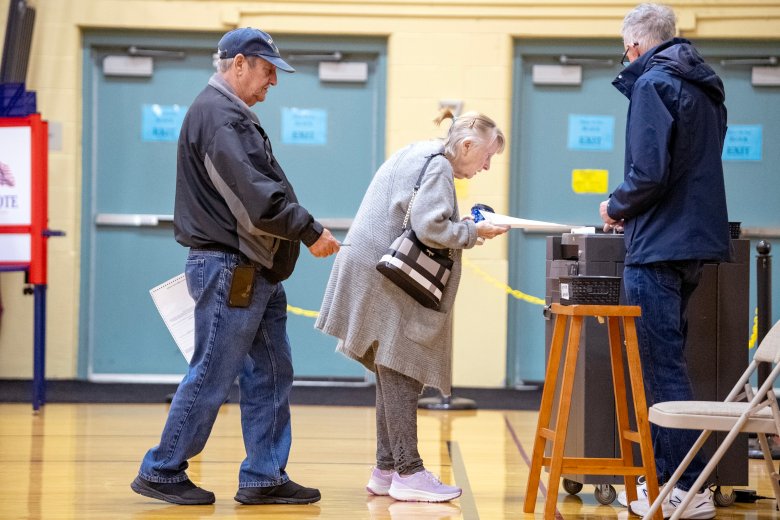
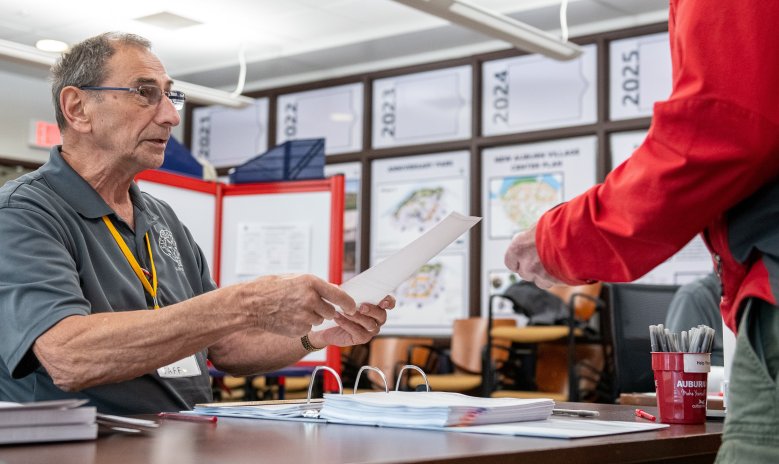
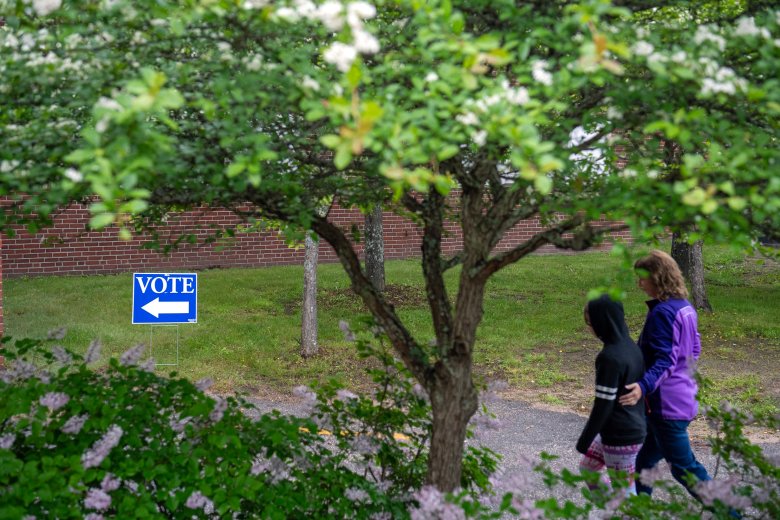

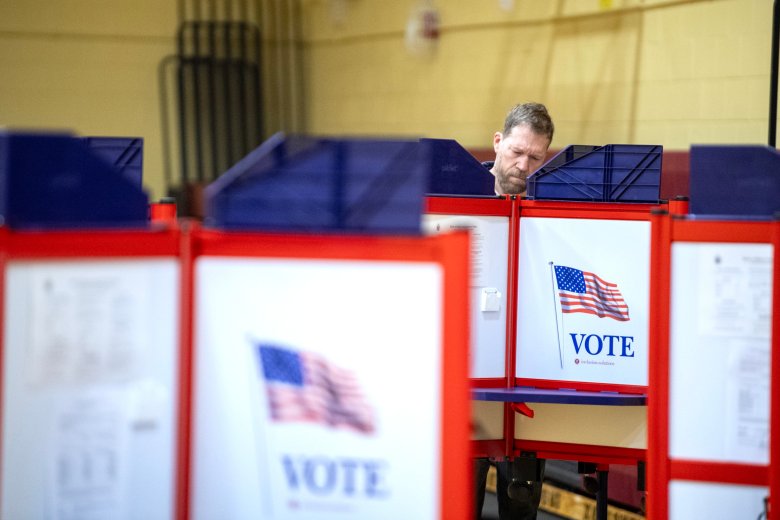
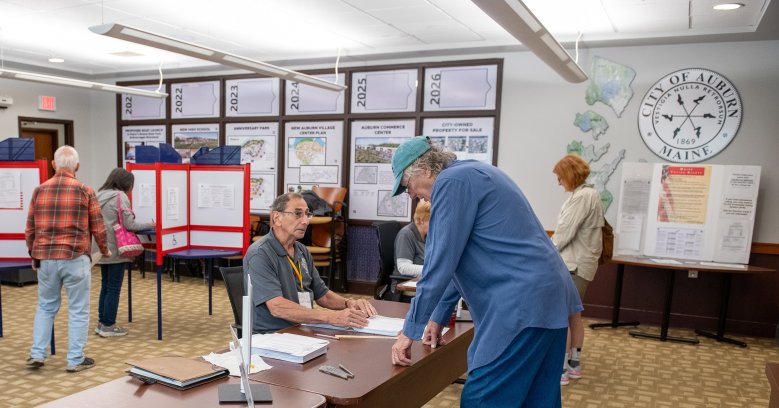

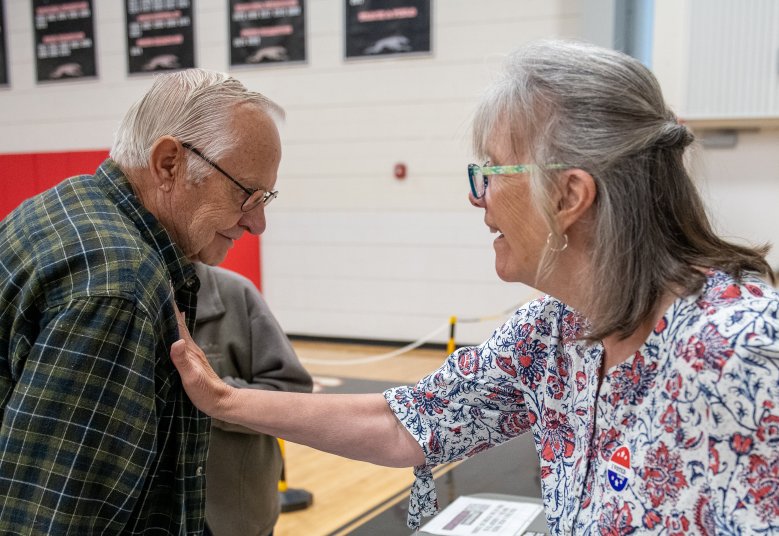
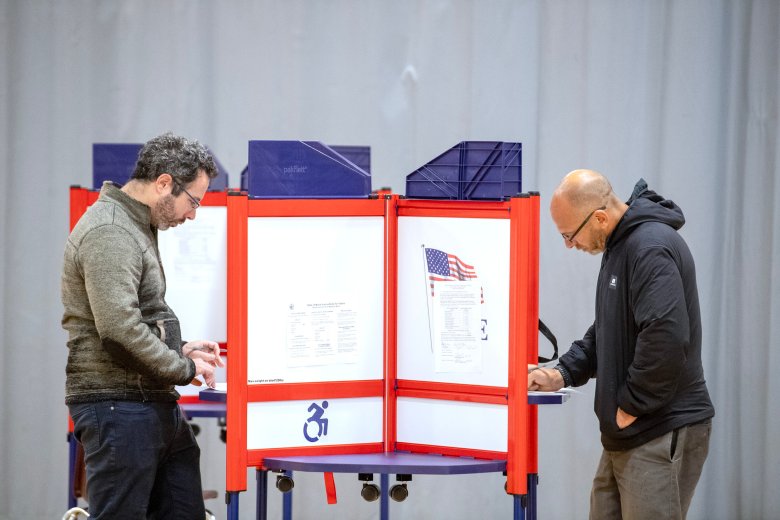
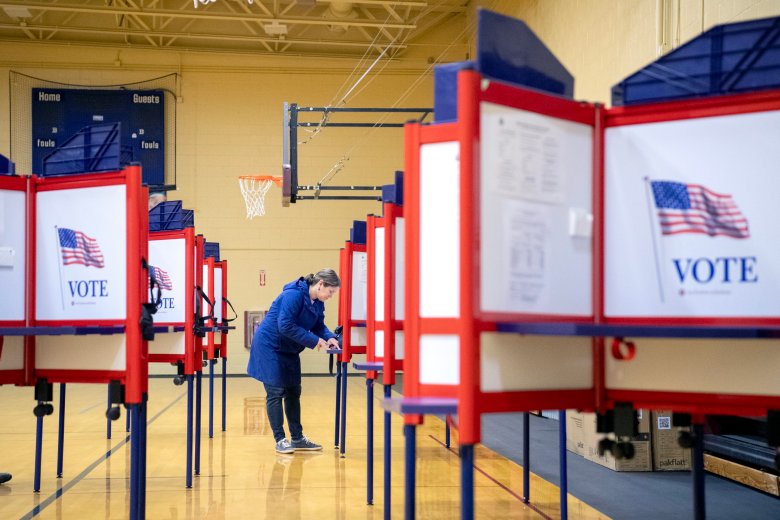
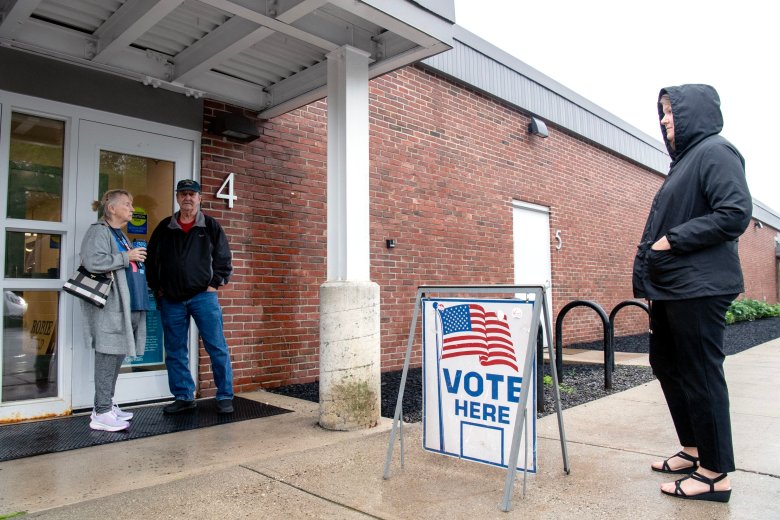
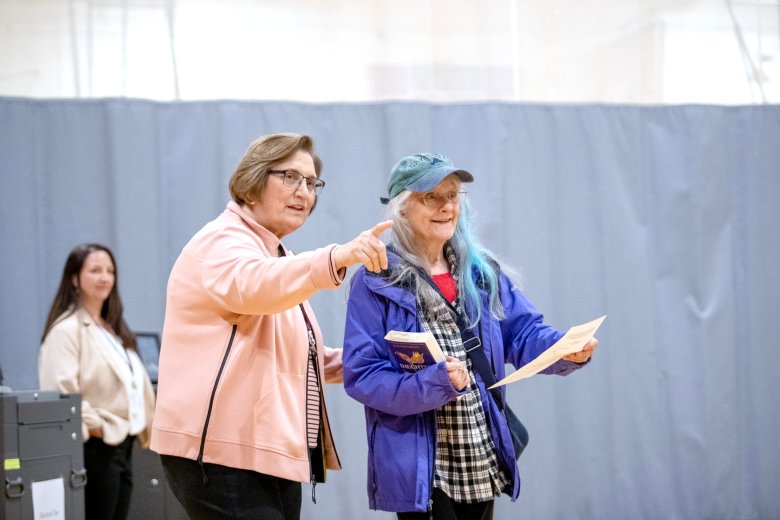
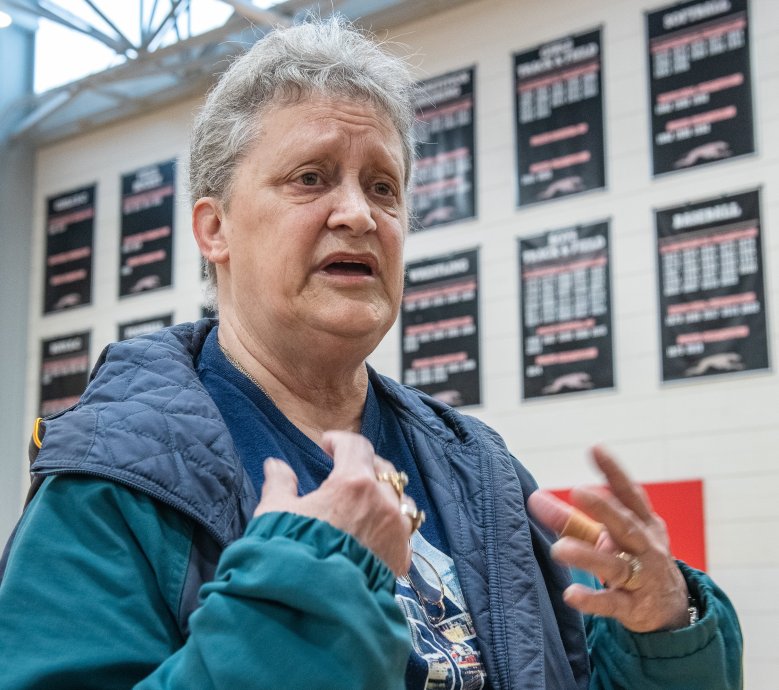
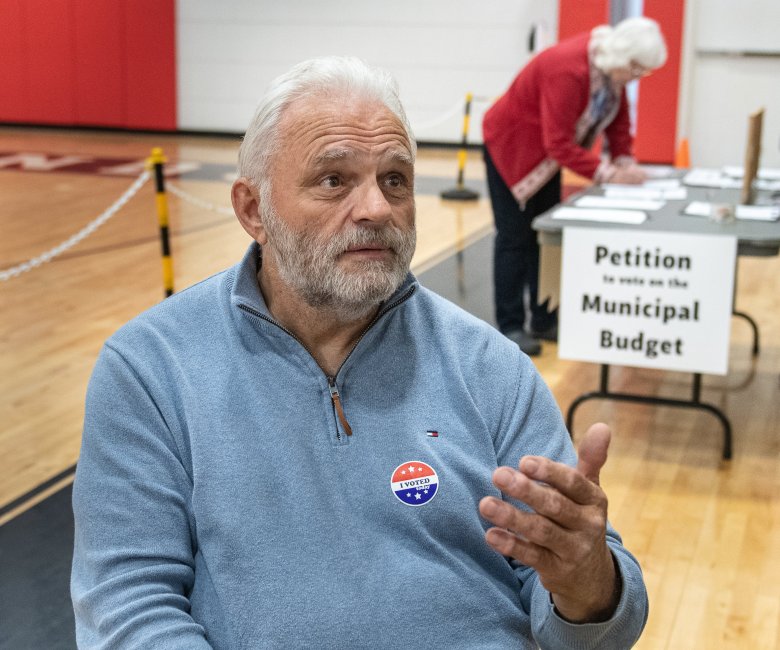


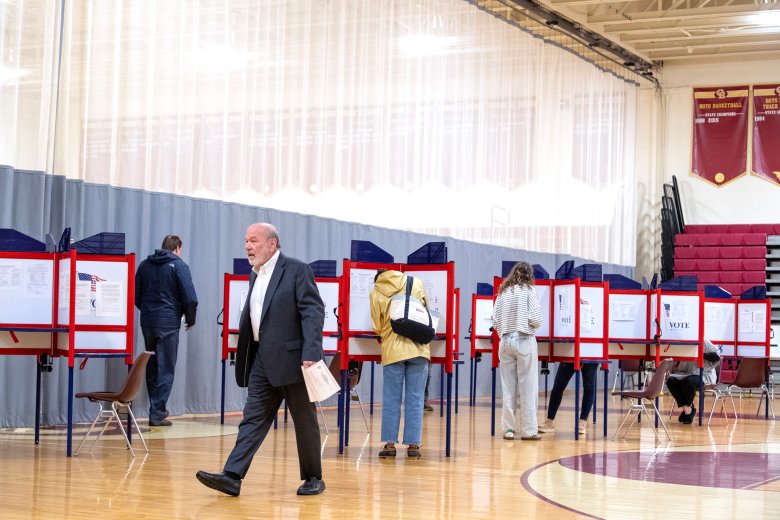
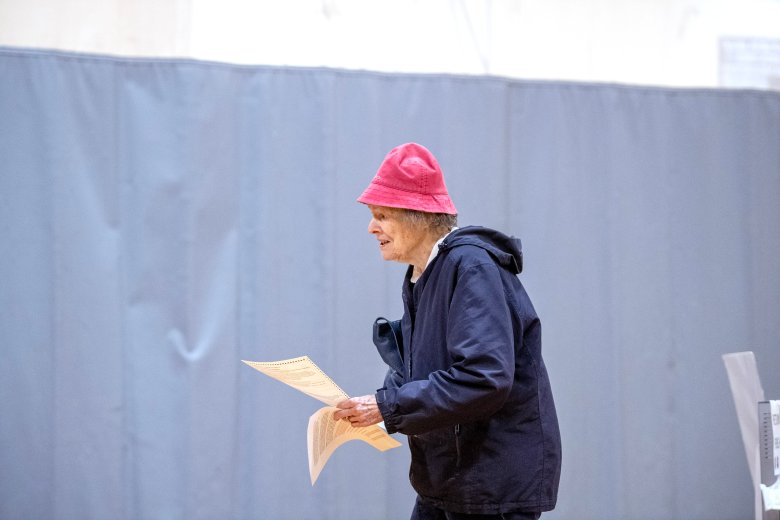
We invite you to add your comments. We encourage a thoughtful exchange of ideas and information on this website. By joining the conversation, you are agreeing to our commenting policy and terms of use. More information is found on our FAQs. You can modify your screen name here.
Comments are managed by our staff during regular business hours Monday through Friday as well as limited hours on Saturday and Sunday. Comments held for moderation outside of those hours may take longer to approve.
Join the Conversation
Please sign into your CentralMaine.com account to participate in conversations below. If you do not have an account, you can register or subscribe. Questions? Please see our FAQs.